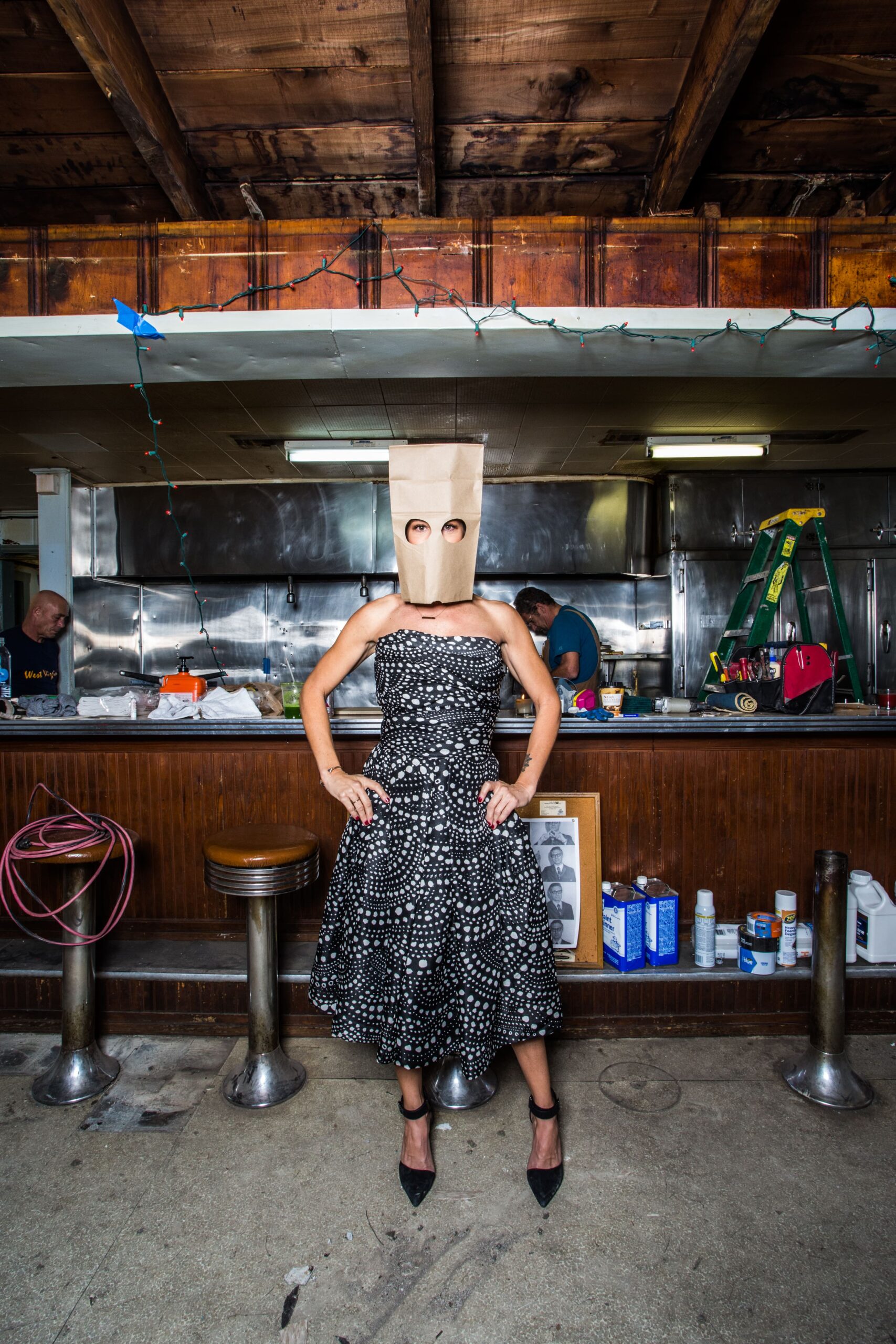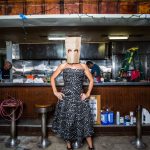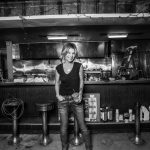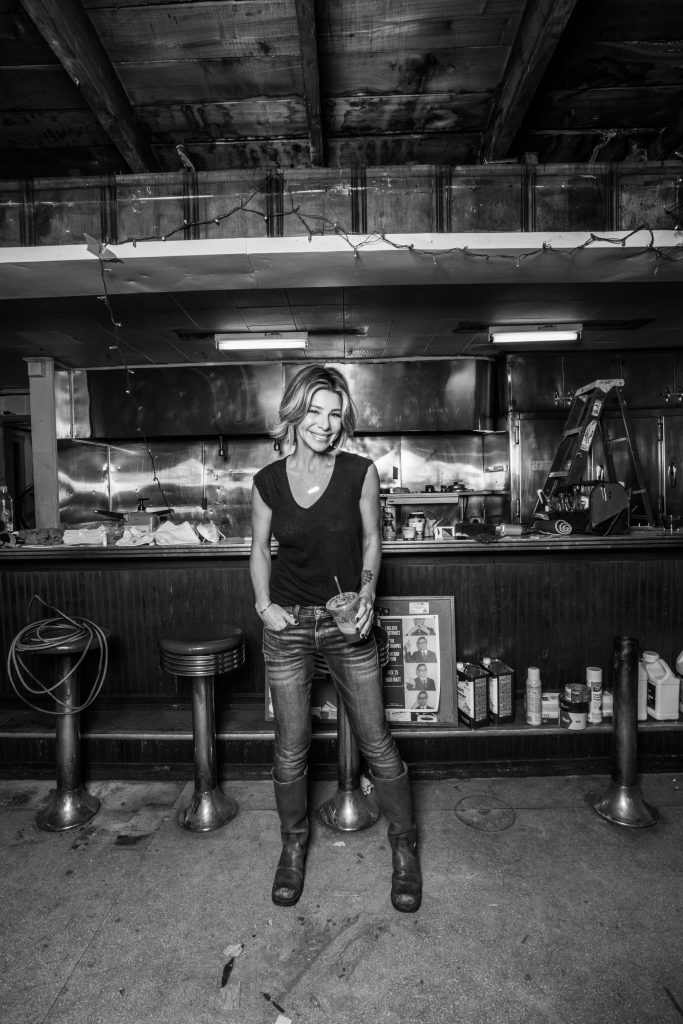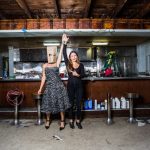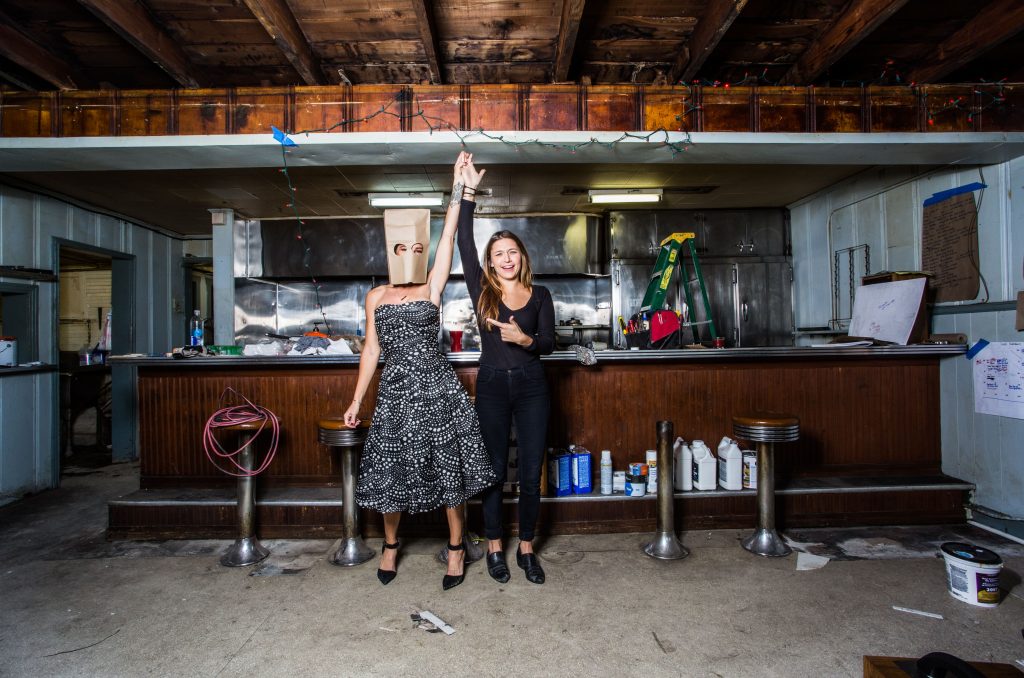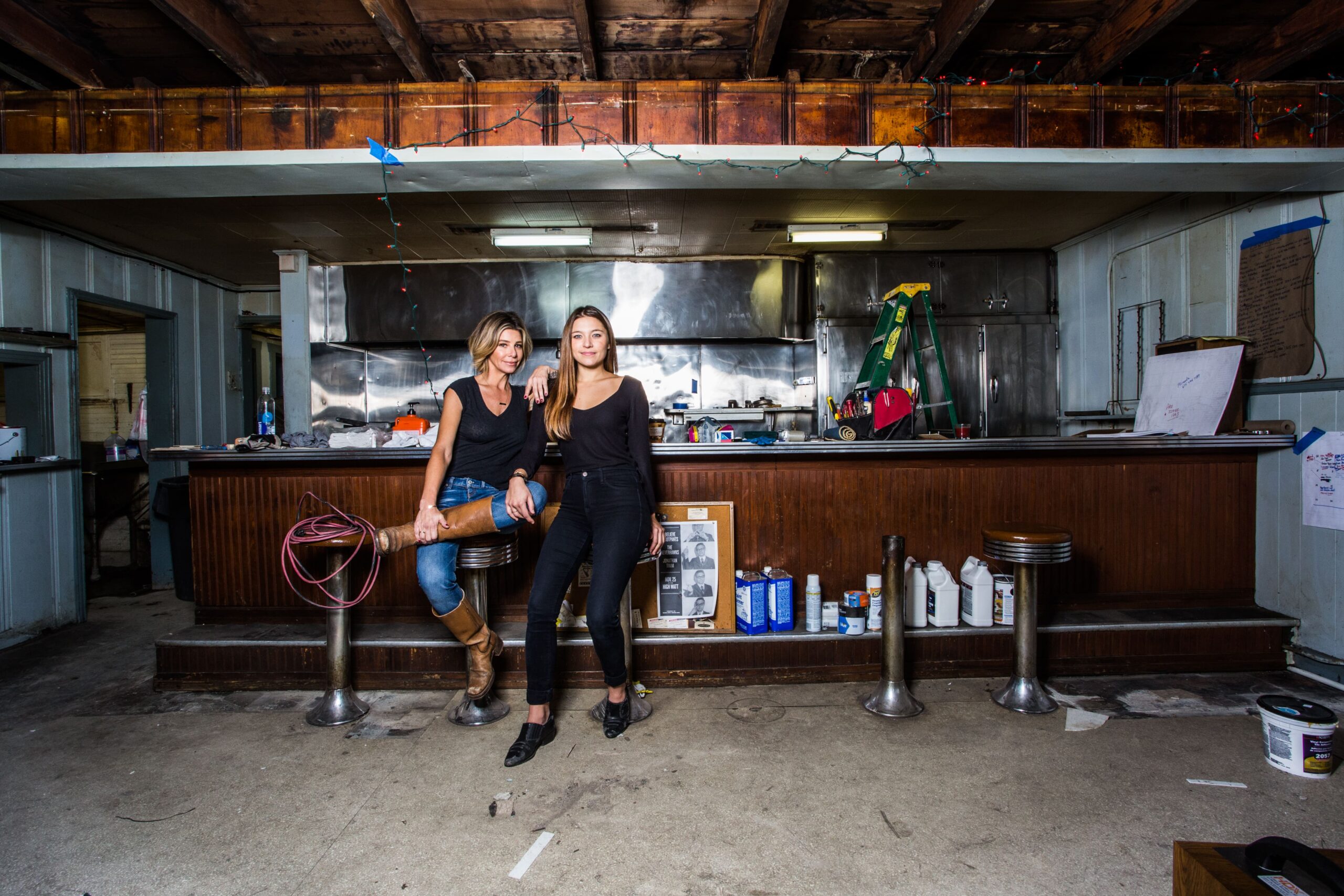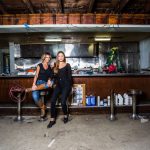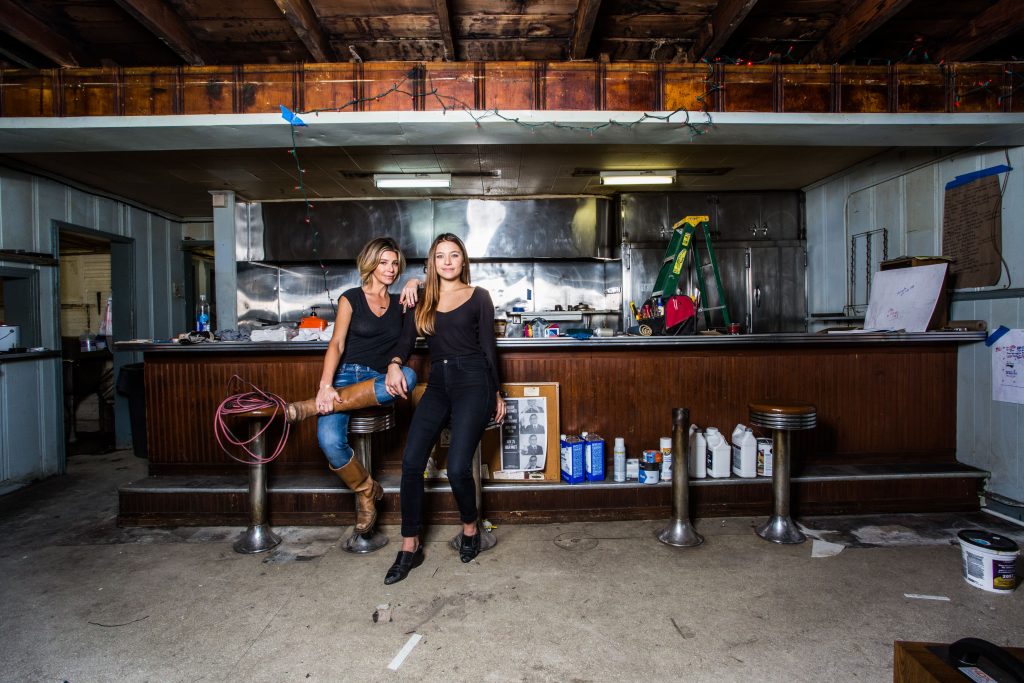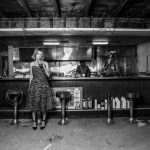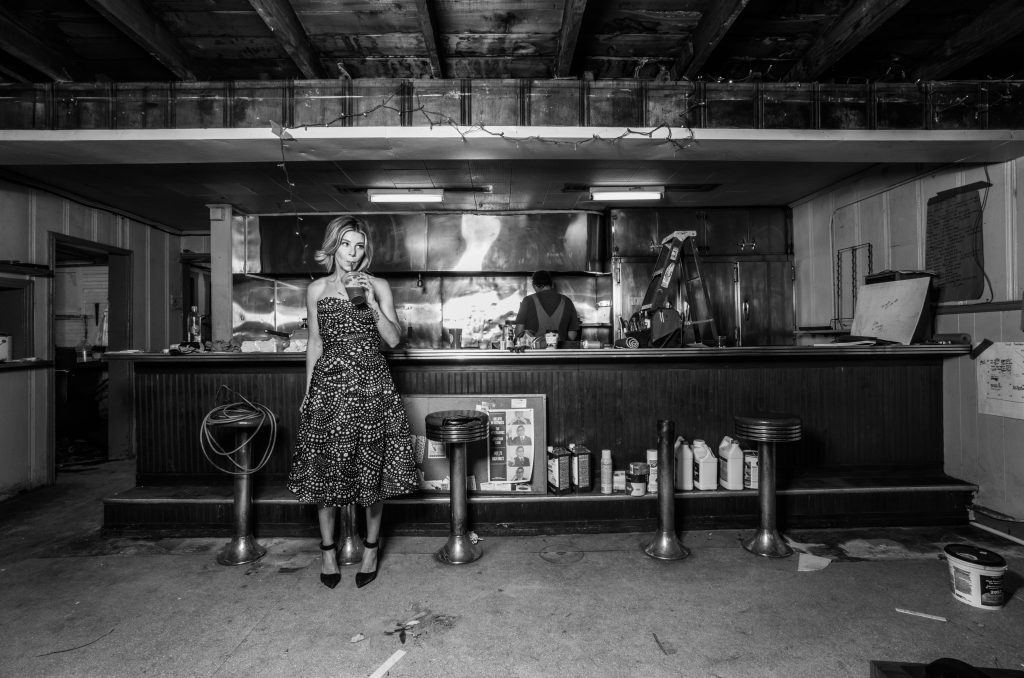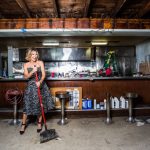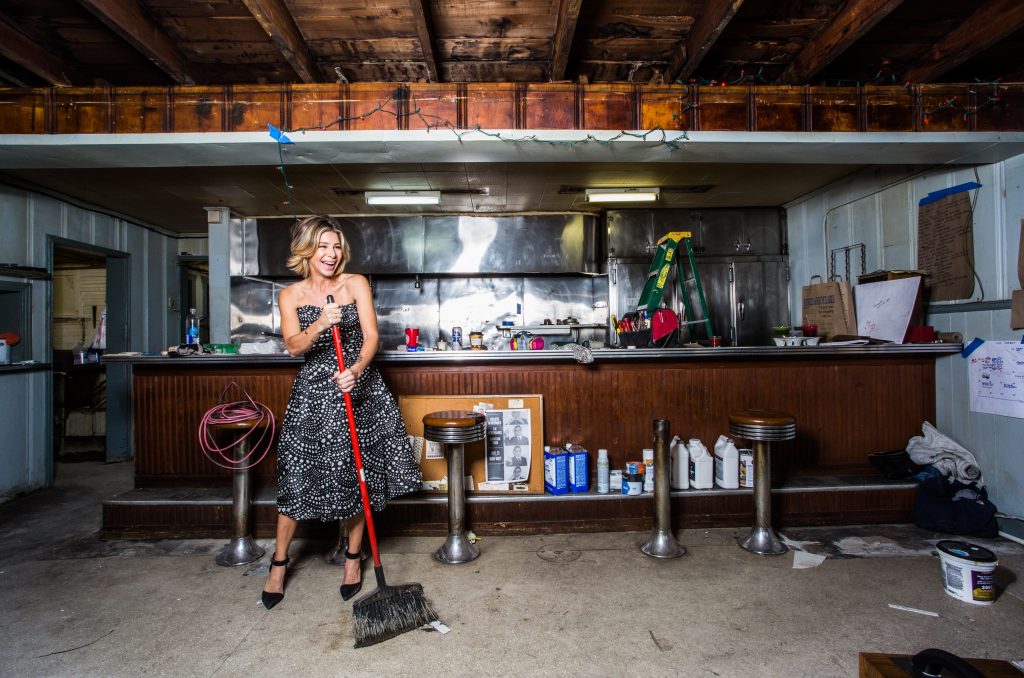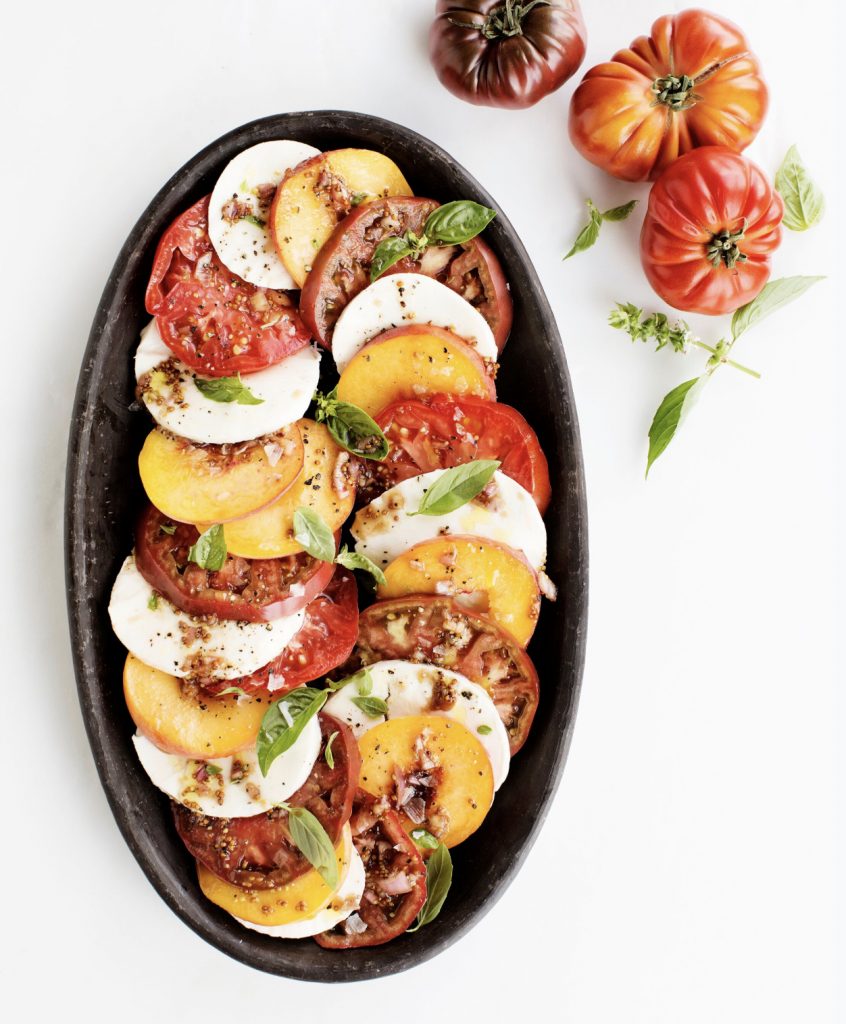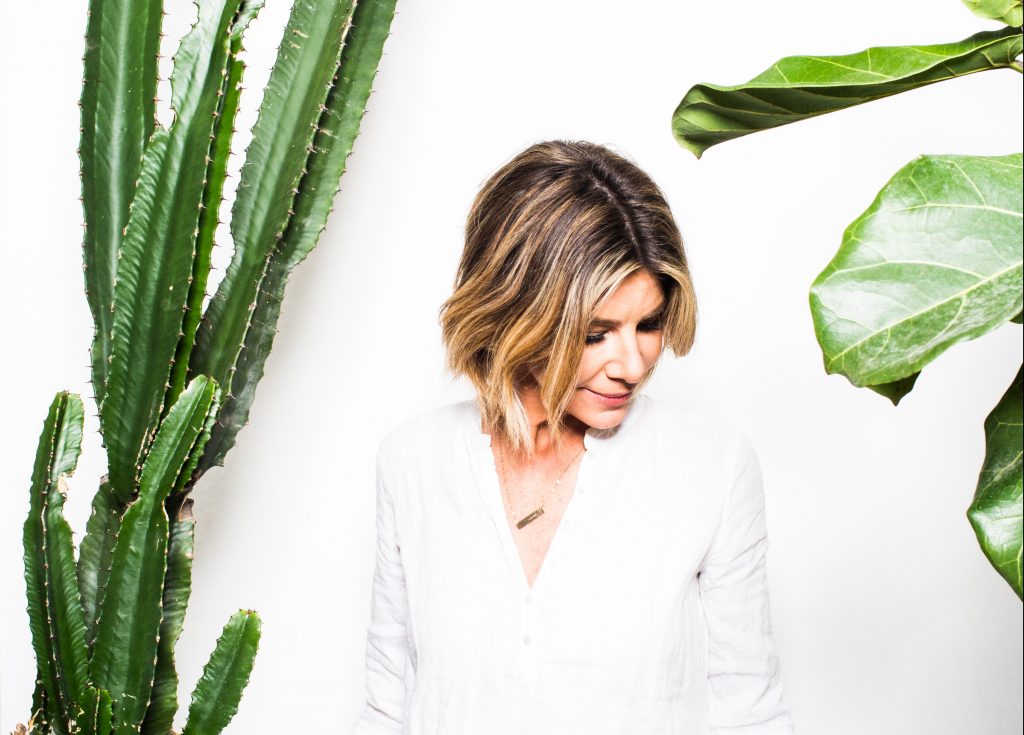
On October 23, 2014, Miranda Whitcomb Pontes—the restaurateur behind Frothy Monkey, Burger Up, Josephine, and Prima—confirmed rumors that she and a business partner were taking over Dino’s, a beloved dive bar on Gallatin Avenue. The following are some reactions to this news culled from the Internet.
FACEBOOK:
“Please, no. No, no, no, no, no! It’s fine the way it is currently.”
“Noooooooooooooooo”
“Why y’all afraid of change????”
“RIP to the real Dino’s.”
“Sob sob sob sob”
“Sad day. Such a rad dive.”
“Dang!! They need to preserve the Nashville staples”
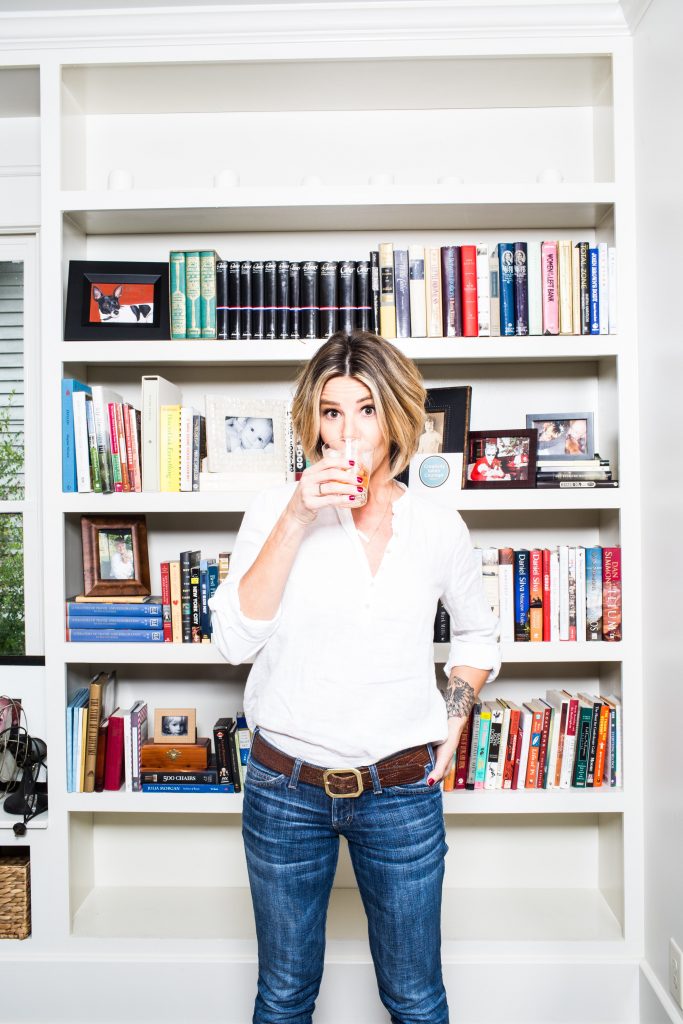
Miranda Whitcomb Pontes walked into a shitstorm. When news broke that she was taking over Dino’s, one of the few remaining dive bars on Gallatin Avenue, people flipped out. For opponents of the switch, this wasn’t just another example of New Nashville stripping Old Nashville of its history and soul. This was something different. This felt like the last straw in a neighborhood’s fight against gentrification.
Not that the change in ownership came as much of a surprise. On weekends, when nearby watering holes like Bar 308 and Edgefield were packed to the gills, Dino’s was often empty. You might have seen a handful of regulars knocking down $2 PBRs, but not enough to keep the bar open—not in that part of town.
Unfortunately (or fortunately, depending on your perspective), the stretch of Gallatin Avenue that Dino’s calls home is a hotbed of new real-estate development. As a result, rent is going through the roof. That’s true for homeowners as well as business owners, and it’s one of the reasons that Rick Wildeboor, the former owner of Dino’s, was unable to hold on to his business. Dino’s revenues simply weren’t high enough to cover the new rent that his landlord wanted to charge. And rather than selling $6 beers and doing karaoke nights, Rick decided to sell the business.
In the middle of East Nashville’s rapid development, Dino’s sticks out like a sore thumb. Its brick facade (if you want to call it that) looks like it hasn’t been washed in a couple decades; its windows are made of thick bulletproof plexiglass (though you can’t see through them because the blinds are usually drawn); and the four beers it advertises (unironically) are PBR, Miller Lite, Yuengling, and Bud Light. From the outside, Dino’s looks like a classic American dive bar that hasn’t changed since the ’70s.
Inside, the bar looks even less like other businesses in the neighborhood. The mismatched barstools are falling apart; the linoleum floor tiles are peeling up; and the smell of cigarette smoke permeates everything—because you could still smoke inside as of a few weeks ago.
That was Dino’s charm, though. While everything in the area seemed clean and new, Dino’s looked like it had been around for a while. It had character and soul. That appearance, combined with former owner Rick Wildeboor’s couldn’t-care-less attitude, gave the bar a sense of authenticity. Compared to all the other businesses nearby, Dino’s was considered Old Nashville.
Miranda, on the other hand, is considered one of the most recognizable faces of New Nashville. In 2004, two years after moving here from Boulder, Colorado, she opened the first Frothy Monkey on 12th Avenue South. Though Frothy “almost didn’t make it,” according to Miranda, she eventually turned a profit and hired a manager whom she would later sell the business to, Ryan Pruitt. Five years after opening Frothy, she opened an upscale burger joint two blocks down the road, called Burger Up.
After the financial and critical success of Burger Up, it was another three years before Miranda opened her second restaurant on 12th Avenue South: Josephine, this time with business partner Jim Lewis (with whom she formed a restaurant group called Community Hospitality). That was just over a year ago. Since then, she and Lewis have opened Prima, a swanky steakhouse located on the ground floor of the Terrazzo building in the Gulch.
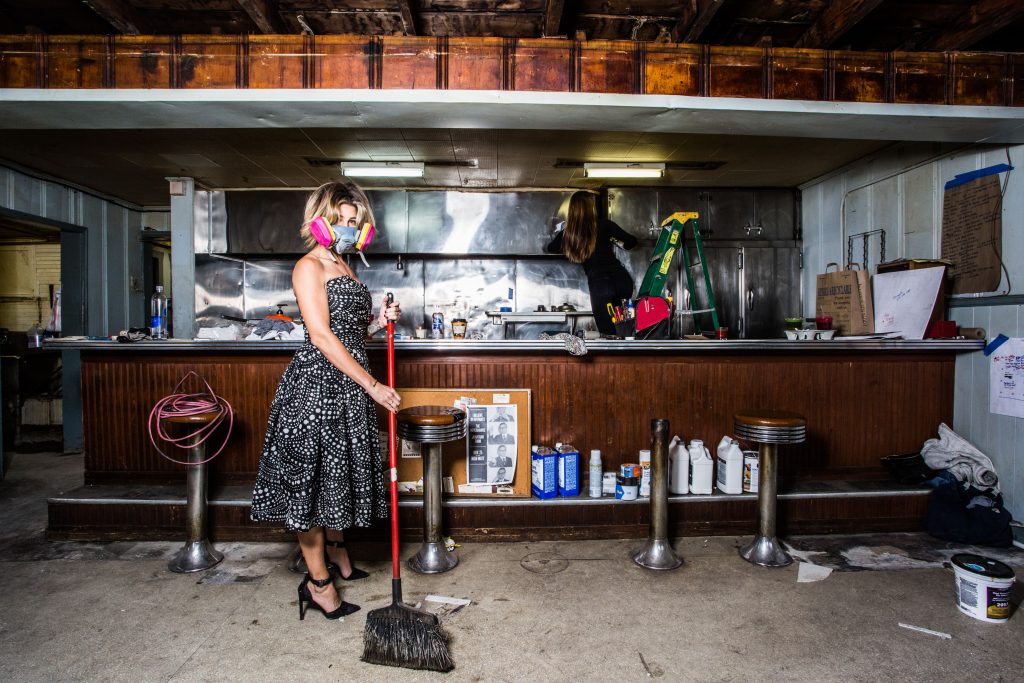
With this resume, it’s no wonder people associate Miranda with New Nashville. Not only are her restaurants new, but every single one of them is located in a newly developed part of town—12South and the Gulch. But does that mean she’s going to ruin Dino’s?
As Miranda takes me on a behind-the-scenes tour of her Dino’s cleanup, I’m reminded of how dingy the place was. Dirty bathrooms, stale French fries on the floor. That dinginess was part of Dino’s charm, but it was probably one of the reasons business declined. Rick recalls rainy nights when his bar would be empty and there would be a horde of people smoking outside Bar 308. To Rick, that meant something had gone awry. “The neighborhood changed,” he tells me over beers at 308, “people didn’t come to Dino’s anymore.” Ironically, it was only when people found out Dino’s was closing that it became popular: “Our last month in business was our best ever, by a long shot.”
If Dino’s is going to make money, it has to attract people on a consistent basis. And to do that, certain aspects of it will have to change. How much changes is something that people are curious to see.
Miranda specifies what some of these changes will be as we make our way to the kitchen. Besides cleaning it up, she’s going to add booths, new plumbing, an outdoor seating area, a few new menu items, and a controversial new rule: no smoking. For opponents of Miranda’s ownership, this is a “hugely monumental shift” that will strip Dino’s of its smelly charm. But for everyone else, the no-smoking rule seems to be welcomed.
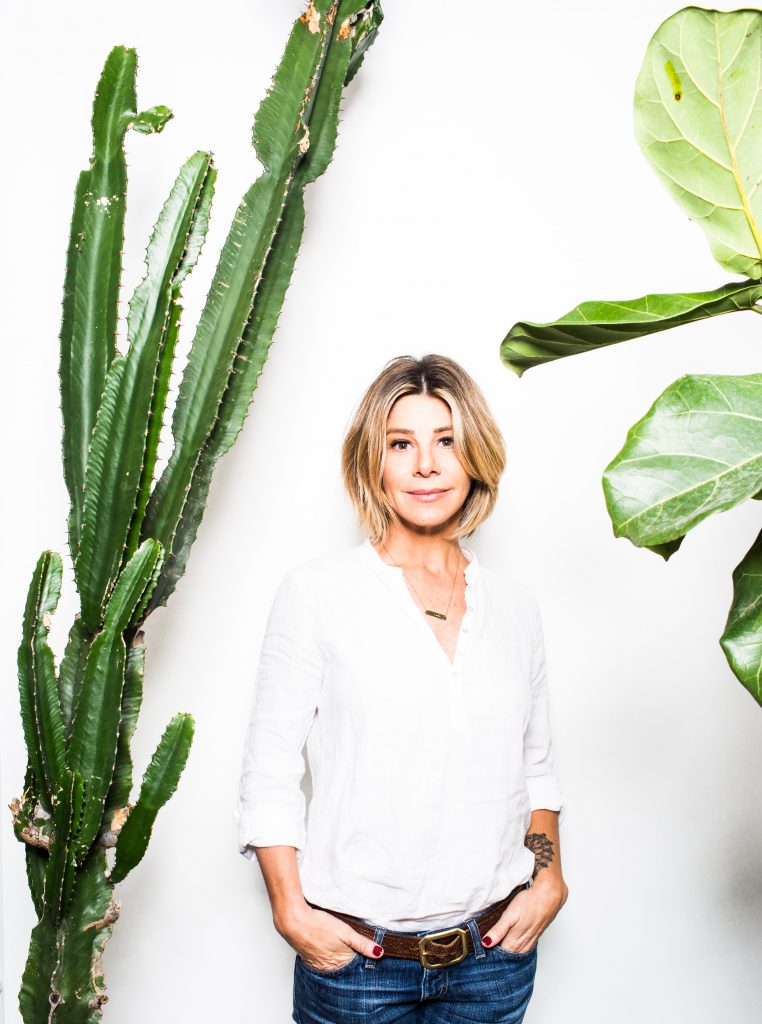
One commenter on Instagram exclaimed, “Looking forward to getting a burger without a side of cigarette smoke!” Another wrote, “Hopefully it’ll be non-smoking!” At the very least, these comments suggest that there’s a group of people who didn’t go to Dino’s because it was a smoking bar—and who might go now that it’s non-smoking.
But the issue of smoking comes back to authenticity. The fact that Dino’s allowed smoking meant that is was an authentic dive bar in a sea of new bars. The smokiness and dinginess and smallness of the place made it real.
Another thing lending Dino’s authenticity is its reputation for having the oldest continuous beer license in Nashville, something that Miranda confirmed for me over coffee. That reputation has added to Dino’s legend and made it seem like Dino’s has been around forever. Another piece of Dino’s mythology is that it was the inspiration for Thin Lizzy’s 1976 hit “The Boys Are Back in Town.” The lyrics go: “Friday night they’ll be dressed to kill / Down at Dino’s Bar and Grill / The drink will flow and blood will spill / And if the boys want to fight, you’d better let them.”
All this was, though, was mythology. Dino’s—our Dino’s, at least—was not the one being referenced by lead singer Phil Lynott. According to information gathered by Alex Wendkos, P’s business partner, in 1976, Dino’s was called Cassidy’s Restaurant. Records show that it has been a restaurant of some kind since 1934, but it was only named Dino’s in 1977.
Originally, it was registered to a man named Lawrence E. Ford. He sold it in 1961 to a man named Ernest O. Towns, who in a flash of originality named it Towns Restaurant. In 1967, it became Merrill’s Grill, under the new ownership of a certain William A. Merrill. After five years in business, Mr. Merrill sold the business to Charles T. Brown, who changed the name to—you guessed it—Brown’s Diner. Two years later, in 1974, it became the Sandwich Shop; and then in 1975, it became the Catfish Shack. Then Cassidy’s Restaurant in 1976.
Cassidy’s finally became Dino’s Restaurant in 1977, but it wasn’t the Dino’s we know. That’s because Rick and Linda Wildeboor weren’t on board. They didn’t take it over until 2007. This fact is significant for several reasons. First, many people assume that Rick has owned the bar for much longer than seven years—an assumption that adds to its authenticity. Second, Rick took over Dino’s after New Nashville started happening. (Miranda, for one, had already been running Frothy Monkey for three years.) So while Dino’s the bar exudes Old Nashville, its last incarnation with its previous owners was actually pretty new.
East Nashvillians who know this and still mourn the death of Dino’s don’t do so because of Rick’s departure, but rather because of the supposed inappropriateness of his successor. Just as people equate Rick with Dino’s, they define Miranda by the restaurants she’s opened: upscale, clean-cut, and fairly expensive. Not particularly Dino-like. But as is often the case, her biography tells a more nuanced story, one that’s a little more self-made than self-indulgent.
To start, she was adopted at birth. The only thing she knows about her biological parents is that she “believes they’re from Mississippi.” Her adoptive parents raised her in Ruston, Louisiana, a town of about twenty thousand that is known for its university, Louisiana Tech, and its annual peach festival. She went to school in Ruston, at the local high school, then attended LSU for a couple of years, where she “got adventurous and experienced everything [she] could, except school.” Her grades were abysmal. So bad that her mother took her out of LSU and got her to transfer to Centenary College, a smaller school closer to home.
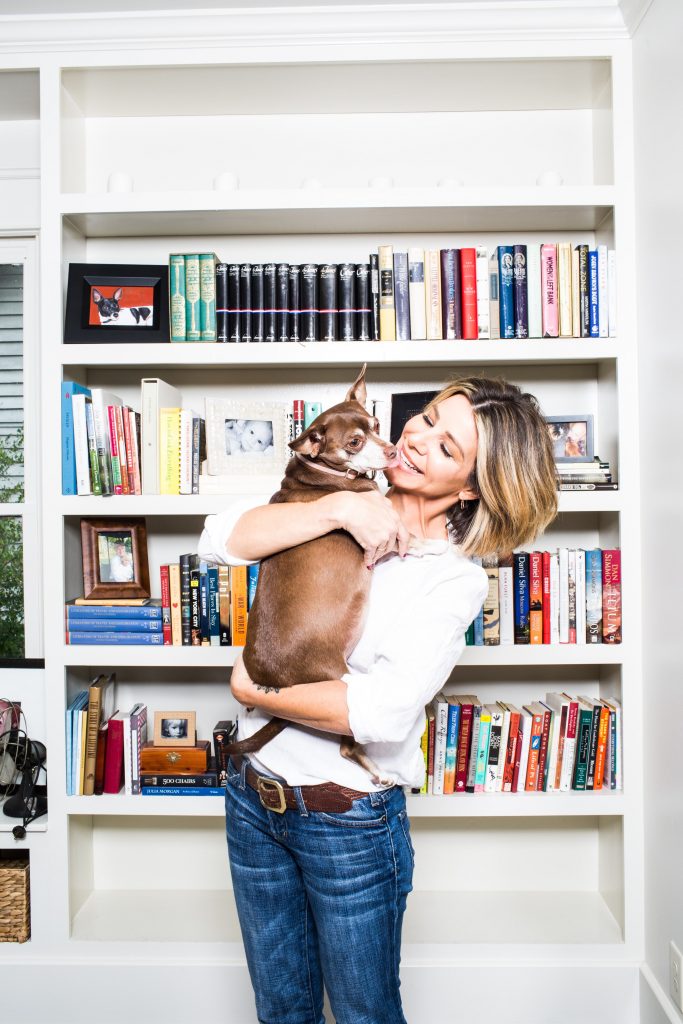
Immediately after graduating from Centenary, Miranda moved to San Francisco. To convince her mom that it was a good idea, she lied about landing a job as a fashion buyer at Neiman Marcus. “The funny thing about that,” Miranda recalls, “is there isn’t even a Neiman Marcus buying program in San Francisco. There’s one in Dallas, which I applied to and didn’t get into, but not San Francisco.” Knowing that her mom would eventually find out that she was lying, Miranda found the nearest Neiman Marcus and got a job there.
Seven years later, at the height of the late-90s dot-com bubble, she switched careers and got a marketing job at a tech startup called ProxyNet. According to Miranda, ProxyNet “developed the very first images on a handheld screen” and was soon bought by Handspring, the makers of second-generation Palm Pilots like the Visor and Treo. Despite that being a “fun, creative place to work,” Miranda’s dream was to work in fashion, so she left ProxyNet and got a job at Chaiken Clothing. That’s when she met Lance Whitcomb.
Meeting Lance was a major turning point in her life. After a few months, they decided to leave the craziness of San Francisco and move to Boulder, Colorado. Deciding that she “was going to be a fifth-grade teacher and that life would be wonderful and everything would work out,” she enrolled at the University of Denver and got a master’s degree in education. Then one day, Lance dropped to one knee and asked her to move to Nashville.
Nashville was unexpected, but it wasn’t totally new to her: “I’d been to Nashville to run the marathon because I lost a bet.” Having crisscrossed around the city, Miranda was familiar with a few parts of town already. What she wasn’t familiar with, though, was having a child. But as soon as she moved to Nashville, newly married, she found out that she was pregnant. “We were elated,” says Miranda, “but our dreams were about to come to a screeching halt.” With a kid on the way, Miranda decided to postpone her plan of becoming a teacher and focus on being a mother. Her son, Landon, was born in May 2003.
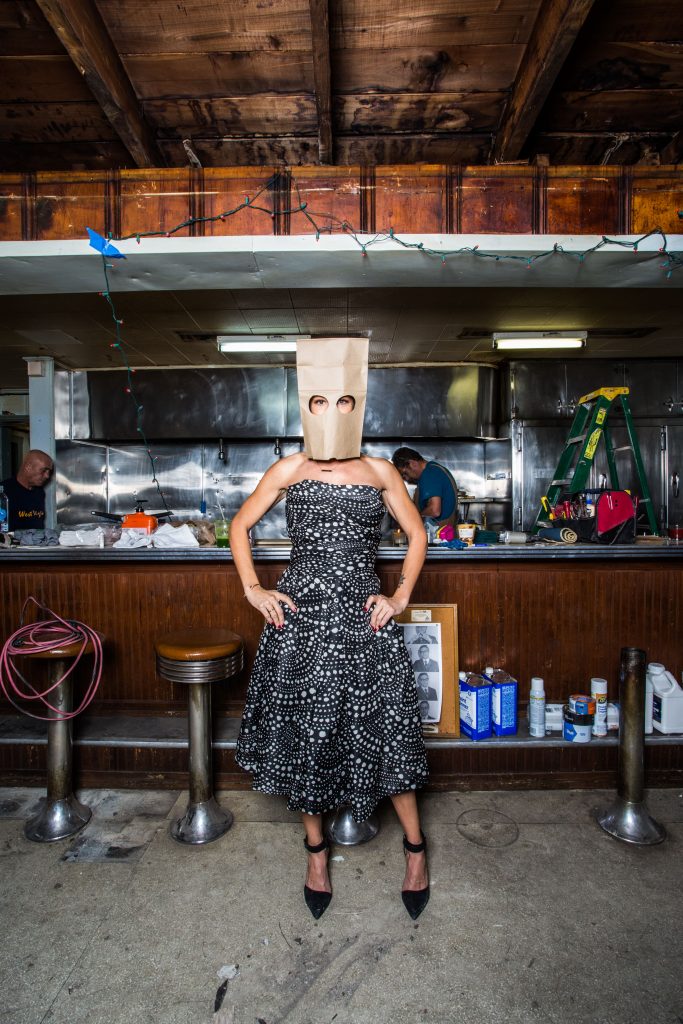
The decision to open Frothy Monkey in 2004 was a naive and impulsive one, driven by an urge to get out of the house and do something. “I had no idea what I was doing,” she says with chuckle. “I actually bought a book: How to Open and Run a Successful Coffee Shop.” When she got the keys to the building, she immediately drove to Home Depot and bought tools to start demolishing the space, unaware that you need permission from the city first. It all worked out in the end, though. Frothy Monkey led to Burger Up, which led to Josephine and Prima. The adopted girl from Ruston had become a full-fledged restaurateur.
Somewhere along the way, though, she got off track. As we’re packing up to leave Barista Parlor, she interjects, “I want to say something.” She pauses. I grab my notepad. “I’ve gotten far away from my core, the business of community and people. I’m doing Dino’s to get closer to that. That’s why I’ve taken a backseat at Josephine and Prima. I’m only a consultant for them now.”
The idea of Miranda Whitcomb Pontes makes people not want to believe her. When I ask her what people think of her, she says, “They think I’m rich and highfalutin.” She understands the perception. She just doesn’t agree with it. “I have a nice car, but I’m old school. I like to be behind the bar, meeting people.” Of all the things that will inevitably change about Dino’s, hopefully that won’t be one of them.
Will Dino’s be the same? No. It can’t be. Not after the neighborhood changed and people moved away and Rick sold the business. But only time will tell if Miranda’s version of Dino’s resembles the old one. After meeting her, I’m willing to give her a chance. So is Rick: “I’ll be the first person there, day one.”
Suggested Content
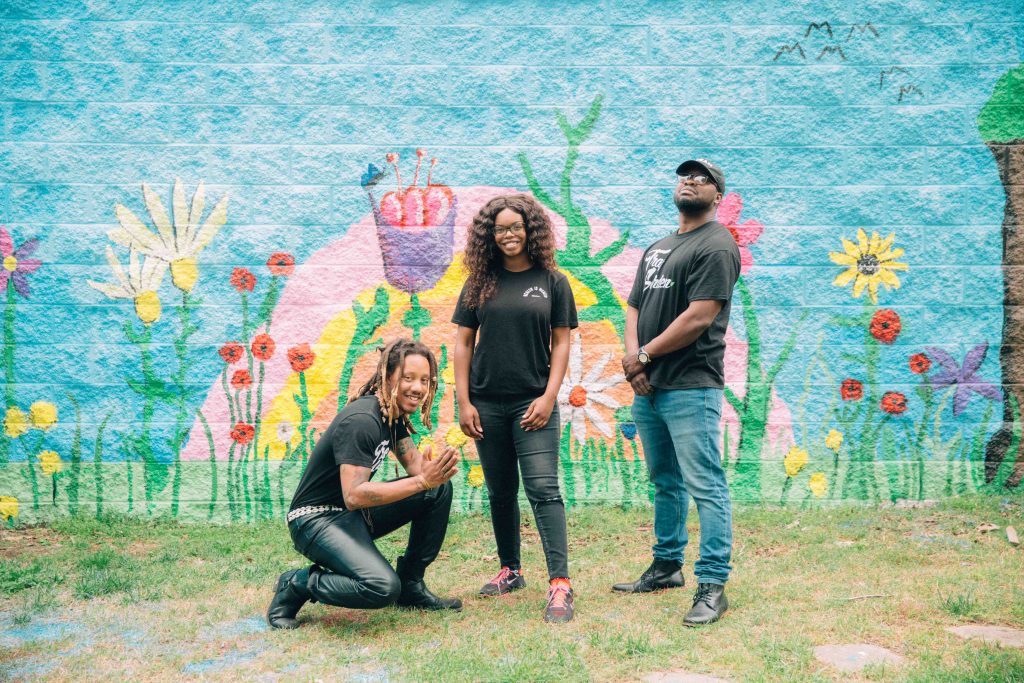
Can You Dig It?
How urban farming nonprofit Trap Garden is working to eradicate Nashville’s food deserts
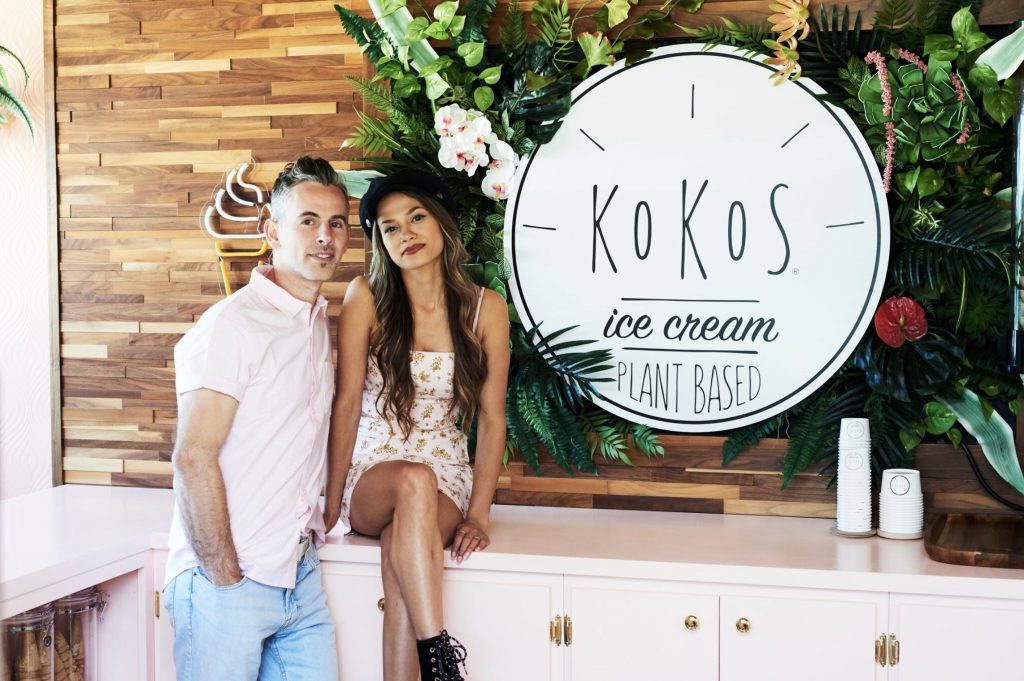
Double Scoop of Happiness
Kokos Ice Cream creators Jerusa van Lith and Sam Brooker want to show you just how good ice cream can be.

